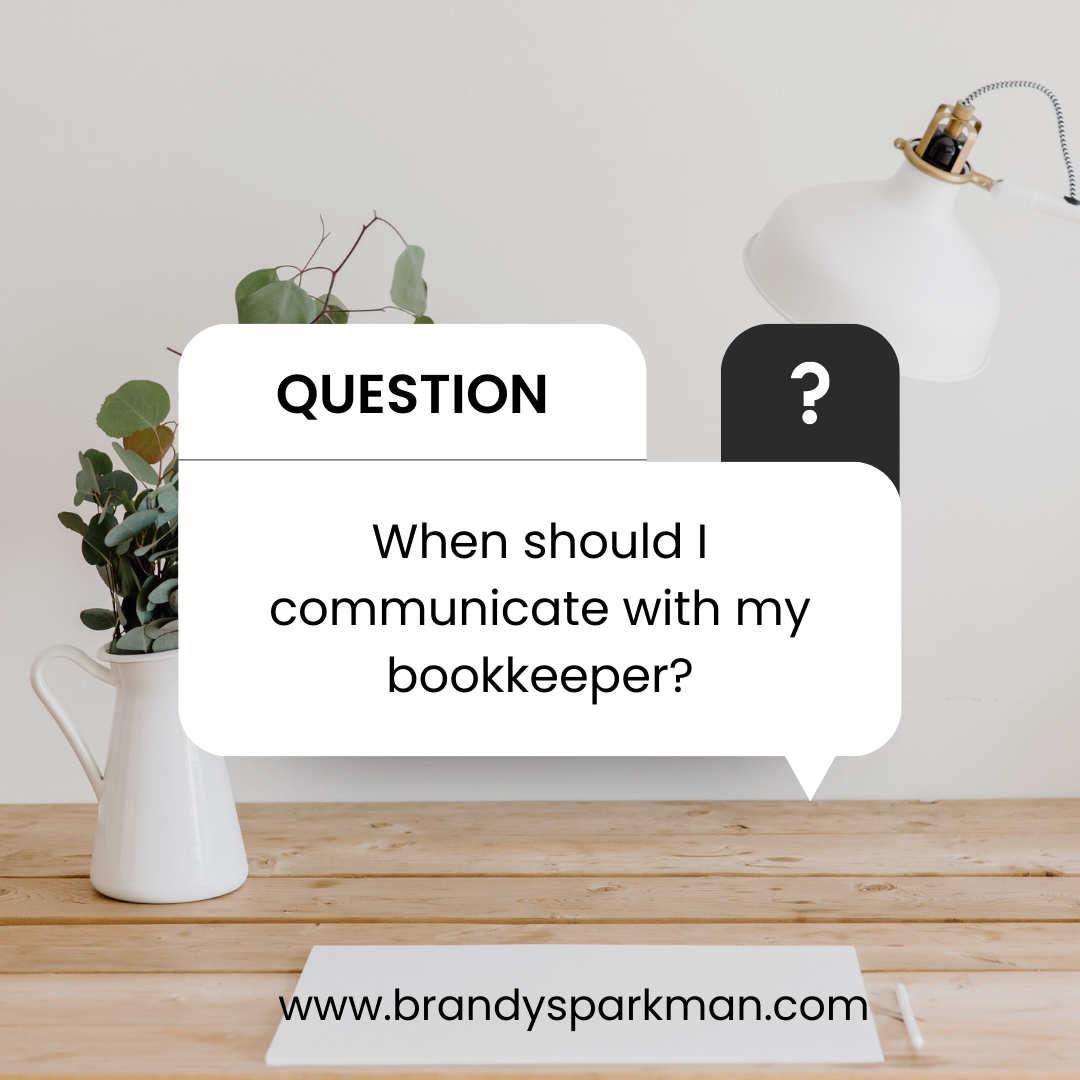When to Communicate Effectively with Your Bookkeeper
As a small business owner, you might be wondering…
When should I communicate with my bookkeeper?
In the realm of small business management, clear and timely communication with your bookkeeper is paramount for financial clarity and success. Knowing when and how to effectively communicate can streamline processes, ensure accuracy, and drive business growth. In this blog post, we delve into the key moments when small business owners should communicate with their bookkeepers to maximize financial clarity and achieve their business goals.
Setting Up Initial Consultations and Onboarding
When embarking on a new partnership with a bookkeeper, effective communication starts from the very beginning. Schedule initial consultations and onboarding sessions to discuss your business's financials, goals, and expectations. By openly communicating your needs and objectives, you lay the groundwork for a collaborative and productive relationship with your bookkeeper from day one.
Providing Regular Updates on Business Activities
Keep your bookkeeper informed about any significant changes or developments in your business. Whether it is launching a new product, expanding into new markets, or experiencing seasonal fluctuations in revenue, regular updates ensure that your bookkeeper has current and accurate information to manage your finances effectively.
Reporting Financial Transactions
Timely reporting of financial transactions is essential for accurate bookkeeping. Communicate with your bookkeeper regularly to ensure that all transactions are recorded promptly and accurately. This includes providing invoices, receipts, and other relevant documentation in a timely manner to facilitate smooth financial management.
Discussing Financial Goals and Objectives
Schedule periodic meetings with your bookkeeper to discuss your business's financial goals and objectives. Whether it is increasing revenue, reducing expenses, or improving cash flow, open dialogue with your bookkeeper allows you to align your financial strategies with your business goals and make informed decisions to drive growth and profitability.
Reviewing Financial Reports and Performance Metrics
Regularly review financial reports and performance metrics with your bookkeeper to assess your business's financial health. This may include analyzing cash flow statements, profit and loss statements, and balance sheets to identify trends and areas for improvement. By collaborating with your bookkeeper on financial analysis, you gain valuable insights into your business's performance and can make data-driven decisions accordingly.
Addressing Tax-related Matters and Compliance
Communicate with your bookkeeper about any tax-related matters or compliance issues that may arise throughout the year. Whether it is processing quarterly tax payments, preparing for annual tax filing, or navigating changes in tax regulations, proactive communication with your bookkeeper ensures that your business remains compliant and avoids potential penalties or fines.
Seeking Guidance and Advice
Don't hesitate to reach out to your bookkeeper for guidance and advice on financial matters. Whether you are considering investment opportunities, evaluating financing options, or planning for future growth, your bookkeeper can provide valuable insights and recommendations tailored to your business's needs and objectives.
Addressing Queries and Concerns Promptly
Address any queries or concerns raised by your bookkeeper in a timely manner. Whether it is clarifying financial transactions, resolving discrepancies, or providing additional information, prompt communication ensures that your bookkeeper can accurately maintain your financial records and provide you with the support and guidance you need.
Conclusion
Effective communication with your bookkeeper is essential for maximizing financial clarity. By proactively communicating at key moments such as initial consultations and onboarding, providing regular updates on business activities, reporting financial transactions, discussing financial goals and objectives, reviewing financial reports and performance metrics, addressing tax-related matters and compliance, seeking guidance and advice, and addressing queries and concerns promptly, you can cultivate a collaborative and productive relationship with your bookkeeper that supports your business's growth.

